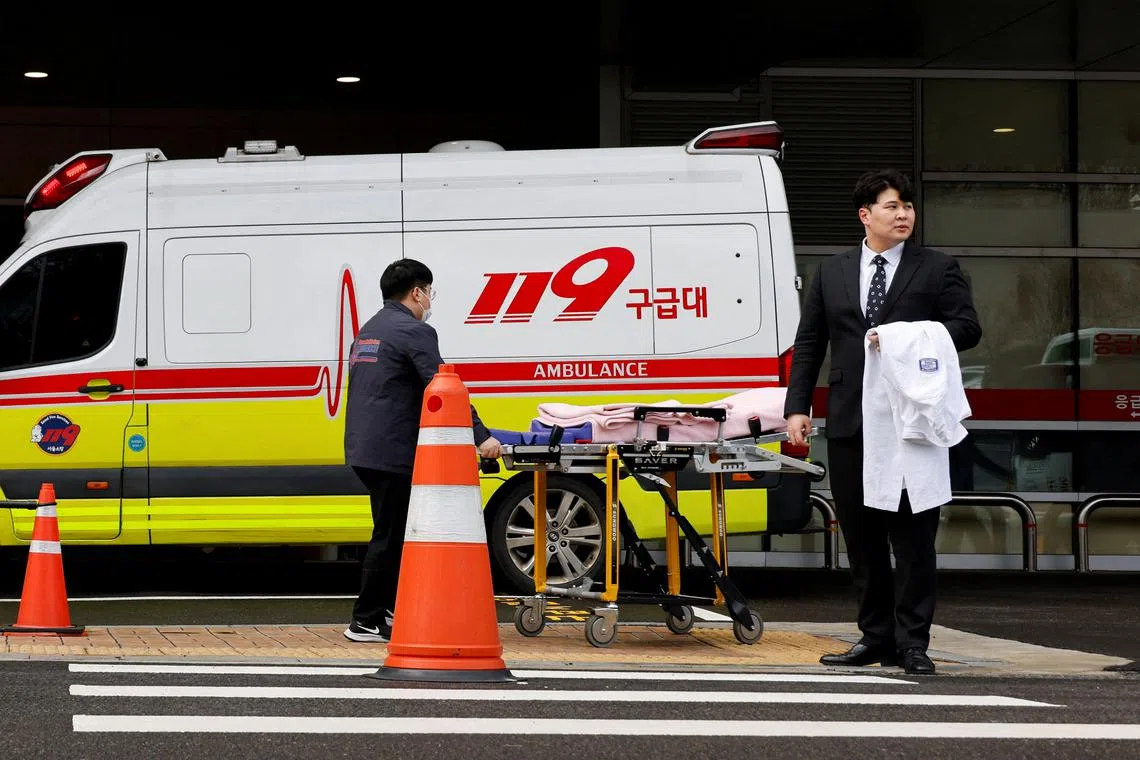More ICU patients died following South Korean doctors’ mass walkout: Lawmaker
Sign up now: Get insights on Asia's fast-moving developments

The mass walkout of residents and interns began in February, following the South Korean government’s decision to raise the medical school admissions quota.
PHOTO: REUTERS
Follow topic:
SEOUL – The number of intensive care unit (ICU) patients who died between February and March, the month after medical residents and interns began to walk out on their jobs or resign en masse
Based on data from the Korea Health Insurance Review and Assessment Service, Representative Kim Yoon from South Korea’s National Assembly’s Health and Welfare Committee said a total of 3,548 ICU patients died in February 2024. That was equal to 12.4 per cent of the 28,665 admitted.
The mortality rate was 1.1 percentage points higher than in February 2023, when the ICU mortality rate was 11.3 per cent, with 3,217 deaths recorded.
The number of deaths recorded in March was 3,644 among the 30,028 admitted patients, making the mortality rate 12.1 per cent. That is 0.9 percentage points higher than the previous year, when 3,600 of the 32,062 patients admitted to intensive care died.
In contrast, the previous month’s figures showed a decline in the ICU mortality rate, with January’s rate dropping from 13.4 per cent in 2023 to 12.7 per cent in 2024, reflecting a 0.7 percentage point decrease.
The mass walkout of residents and interns began around Feb 20, following the South Korean government’s controversial decision to raise the medical school admissions quota by 2,000.
While this medical void may have contributed to the increase in ICU mortality, other factors, such as seasonal temperature variations and the prevalence of infectious diseases, may have contributed to the change, the report explained.
But Mr Kim claimed they could have been exacerbated by a shortage of personnel leading to a poorer quality of care
The South Korean Ministry of Health and Welfare said that ICU mortality rates can be influenced by a wide range of factors, including the severity of patients’ conditions and age demographics.
The ministry cautioned against drawing definitive conclusions from the limited data presented, noting that ICU death rates fluctuate from year to year.
“While our emergency care capacity has been impacted by the departure of medical professionals, we are committed to maintaining critical care services,” the ministry said. THE KOREA HERALD/ASIA NEWS NETWORK

